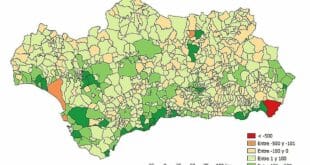The Spanish government approved the draft of a law to protect minors online. Among other measures, it raises the age limit for opening an account on social media or for subscribing any platform, from 14 to 16 years old. The Spanish government has approved the draft law for the protection of minors in digital sphere which, among other measures, raises from 14 to 16 years old the minimum age required to open a social media account or subscribe to any type of platform.
Text, now in its final stages of approval and processing, states that the minimum age to consent to the use of personal data for different operators of internet content will be increased to 16 years. This restriction will only take effect if the public authorities make sure that internet content operators comply with another requirement in the regulation, namely implementing an age verification system. This involves upgrading the current system.
The bill includes a number of measures that aim to stop minors from easily accessing adult content, such as pornography or violence, and gambling. It also implements mechanisms to detect damage early caused by problematic digital device use. Manufacturers and providers are held accountable for their actions, and those who do not comply will be punished. Minors should be trained to protect them against the risks they face since childhood.
Here are some of the amendments and provisions in the draft:
The right of minors is to be protected against digital content that could harm their development, receive information about technology in an age appropriate form and language, and to be informed about their rights, and about the risks of the digital environment. They also have the right to access information, to be heard, and to be given access to digital tools, devices and connections.
Digital distancing can be compared to physical restrictions such as a ban on communicating with the victim by any means, or an order not to visit their workplace, home or residence. When the crime is committed in a virtual space such as social media, forums or communication platforms, or other digital spaces, this penalty prohibits communication or access. This penalty can be applied to a variety of crimes such as domestic abuse, cyberbullying or gender-based violence.
-
Imprisonment for deepfakes
The sentence will range from one to two year imprisonment for those who, without permission and in an attempt to undermine the moral integrity of the individual, distribute, display or transfer the body image, voice audio, or other content that was generated, modified, or recreated by automated systems, software algorithms, artificial intelligence, or any other type of technology so as it appears real. This includes simulating sexual or degrading situations. If the spread is widespread, the penalty is two-years.
-
Fake virtual identity is a aggravating factor
Under the penal code, the use of false identities on the Internet, such as falsifying gender or age, to facilitate crimes will be considered a aggravating factor. The maximum penalty for each crime will increase to the upper range. The main focus is on sexual crimes against children such as grooming, harassment, assault, exhibitionism and corruption.
This regulation expands the existing system of legal procedures, swift actions, and removal of pirated material from digital sites or web pages, or even closing the page, if it violates children’s rights. The same legal procedures and swift actions are available to public authorities in situations where the best interests of children must be protected.
The reform increases the risk of paedophiles impersonating children and accelerates the removal harmful content on the internet.
-
Ex officio parental control
All mobile phones and tablets sold in Spain must include a free and effective parental control system. This will allow parents and guardians to take steps to protect their children from the dangers of browsing the Internet, chatting and using social media. The system will be activated by default during the initial configuration of devices, just as it is with other features such as languages. It will then be up to parents to decide if they want to activate these protections, and impose limitations to their children’s device and internet usage. The configuration must be simple and easy to understand for all.
-
Alerts and age confirmation
A system of age verification will be used to control access to adult content, such as pornography, gambling, or violence. All content that is inappropriate for minors, including pornography, gambling and violence will be clearly labelled. Risk information in plain language will also accompany the labeling. These mandatory warnings facilitate parental control by allowing parents to block websites, apps and forums.
In their routine, paediatricians will ask questions to detect screen addiction early.
In the programme used by paediatricians, nurses and health centers to detect and prevent illnesses and harmful habits or behaviours in childhood and adolescence, questions will be included that allow for early detection of signs that indicate problematic use of screens or internet (or addiction). When professionals detect signs of this nature, they will provide specialised assistance. In coordination with healthcare providers, the implementation of protocols and their design will be done. Centres specialised in the study of adolescents’ technological addictions have observed an increase. Video game addictions are more common in boys, while social media addictions are more common among girls.
The regulation calls for the implementation of an integrated national strategy to protect children’s digital safety, including short-, mid-, and long-term strategies, the majority of which are based on a proposal by a group 50 experts. The digital literacy program will be one of the most important measures. It will be taught in each region from primary school to secondary, and will give children the tools to protect themselves and detect fake news. It won’t be a separate subject, but an integral part of education that will require specific training to teachers and guidance counsellors.
Influencers should give an unequivocal, explicit warning when they broadcast material that may harm the mental, physical or emotional development of minors.
-
Bans on ‘lootboxes’
Loot boxes in video games will no longer be accessible to minors. This is a surprise buy where the player awaits the weapon or tool they need to beat the challenge. The box will open and reveal the prize once you have paid. You will usually be disappointed, but you can try your luck again with a different chest and payment.
 Costa News Spain Breaking News | English News in Spain.
Costa News Spain Breaking News | English News in Spain.







